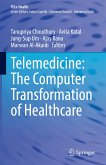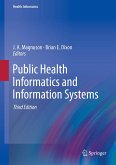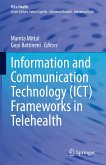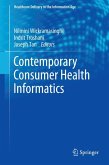Public Health Informatics: Implementation and Governance in Resource-Limited Settings is designed to provide insight for public health practitioners, technologists and healthcare workers to the use of digital technologies in public health especially those based in otherwise resource-limited settings. It is therefore vital reading for stakeholders who strive to set policy, guidelines and establish infrastructures to reduce the digital-divide in healthcare delivery.
Dieser Download kann aus rechtlichen Gründen nur mit Rechnungsadresse in A, B, BG, CY, CZ, D, DK, EW, E, FIN, F, GR, HR, H, IRL, I, LT, L, LR, M, NL, PL, P, R, S, SLO, SK ausgeliefert werden.









